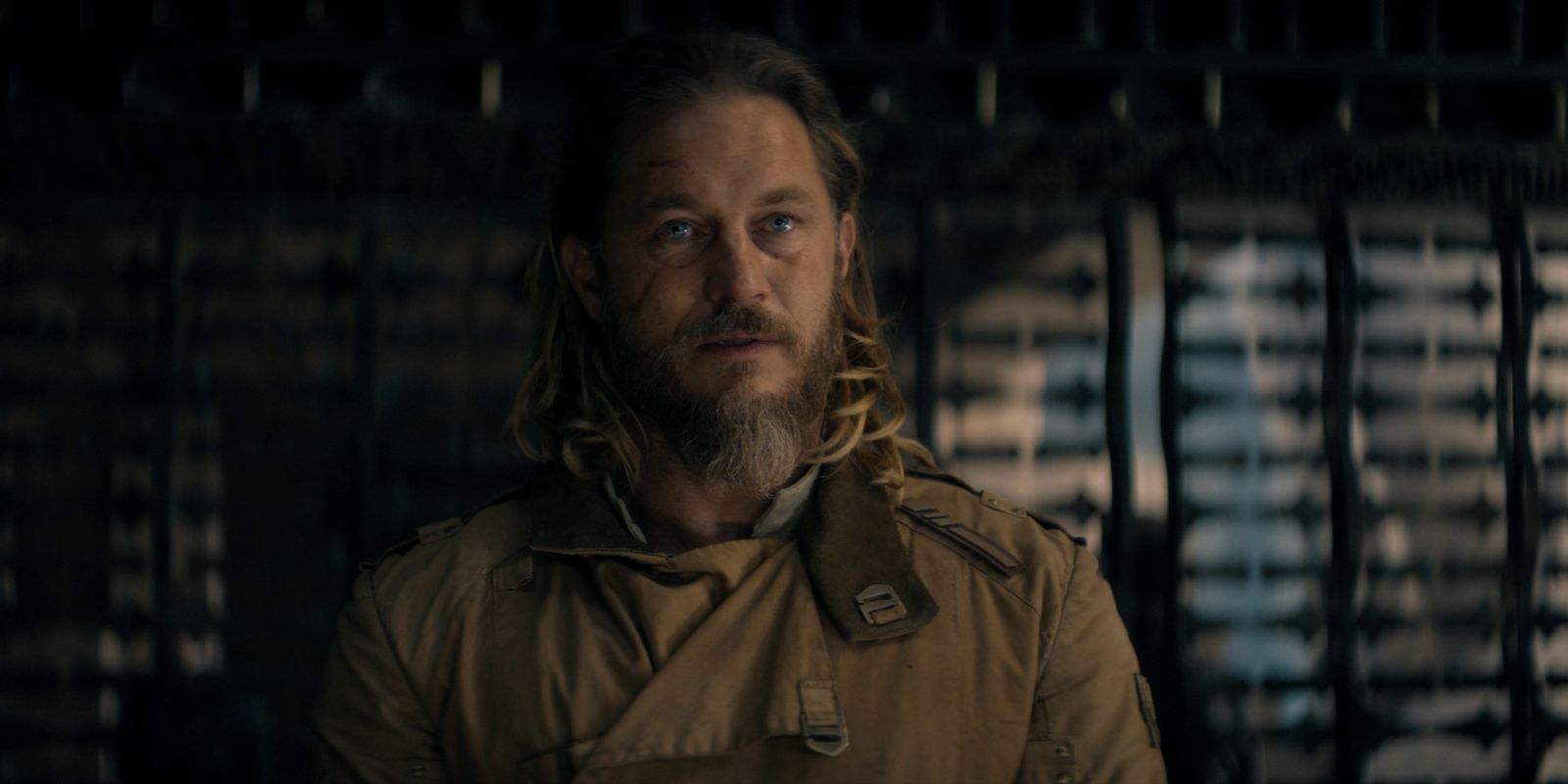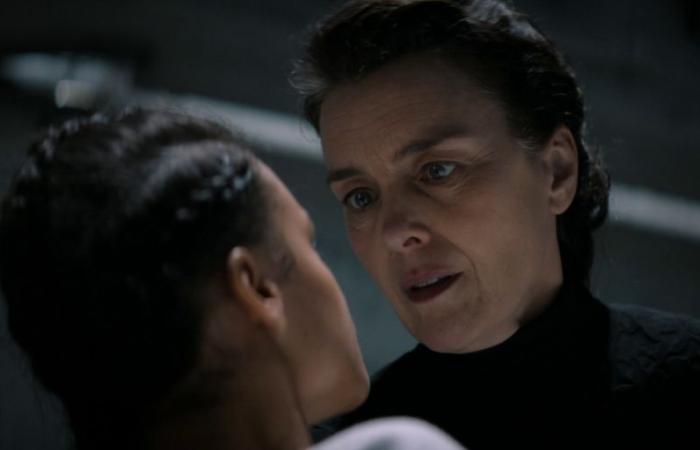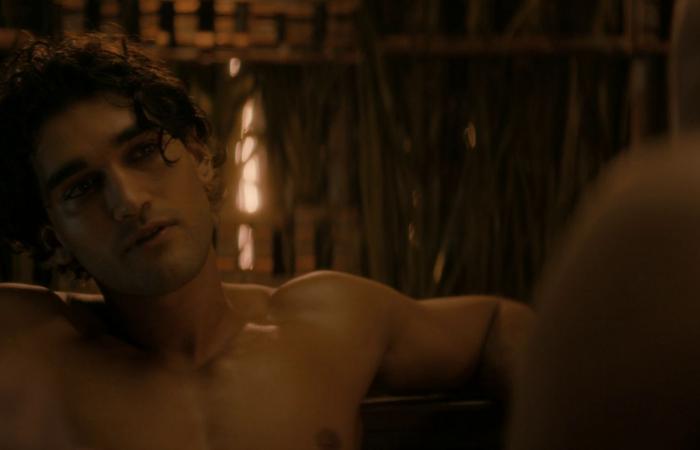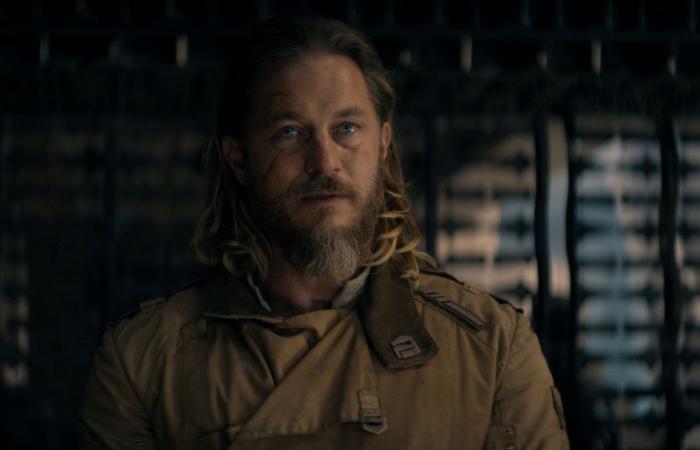Dune: Prophecy // Saison 1. Episode 2. Two Wolves.
After a first episode loaded with setup, Dune Prophecy gets to the heart of the matter with its second episode, “Two Wolves”. Where the pilot focused on introducing political dynamics and underlying tensions, this episode delves deeper into the characters and develops more concrete issues. The universe begins to reveal its complex layers, mixing power struggles, mental manipulation and mysticism. Here is my detailed review of this key episode. If the first episode was sometimes laborious, “Two Wolves” manages to captivate by tightening its plot around well-defined characters and conflicts. The episode opens with the consequences of the two notable deaths at the end of the pilot: that of Pruwet Richese and Truthsayer Kasha.
These tragic events are not simple isolated events, but tipping points that accelerate the story. Political tensions take on a new dimension, with Emperor Javicco Corrino skillfully navigating lies and partial truths to maintain his authority. His interactions with Desmond Hart, a soldier with a mysterious past, are fascinating. The latter, capable of a destructive force as terrifying as it is inexplicable, becomes a central and threatening figure. Desmond's intentions remain unclear, but his statement justifying his actions hints at a personal vendetta against the Sisterhood. This episode highlights a major theme: the struggle for control. Whether through mental manipulation or brute force, each faction attempts to strengthen its influence.
The Emperor, Valya, Tula, and even the young acolyte Lila, all seek to take advantage of recent events to establish their power or avoid their destruction. The episode also introduces an intriguing new element: a sinister prophecy known as “Tiran-Arafel.” This vision of a tyrannical power threatening to destroy the Sisterhood fuels the actions of the characters and opens the door to even more intense confrontations. The Sisterhood, although founded on principles of foresight and strategy, is faced with a dilemma: how to survive in the face of a threat that it can neither control nor fully understand? Among the most striking narrative arcs of this episode, that of Lila, young descendant of the legendary Raquella, stands out for its dramatic intensity. Under pressure from Valya and Tula, Lila undergoes “The Agony”, a perilous mystical experiment aimed at communicating with the souls of the deceased to discover hidden truths.
This sequence, although visually austere, is full of symbolism and emotion. In this sort of spiritual purgatory, Lila is confronted with visions of her mother, Dorotea, who reveal the Sisterhood's past betrayals. This moment accentuates another recurring theme: individual sacrifice for the benefit of a collective cause. Lila's suffering highlights the brutality of a system ready to do anything to preserve its power, even if it means sacrificing its most vulnerable members. Desmond Hart, played with chilling intensity, plays an atypical antagonist. A former soldier marked by his time on Arrakis, he becomes a “living weapon” with ambivalent intentions. Able to reduce his enemies to ashes with supernatural power, Desmond goes beyond the simple role of a physical threat.
His deep motivations and his declared aversion to the Sisterhood suggest a complex character, perhaps guided by a personal vision of justice. The confrontation between Desmond and Valya in the final scenes is particularly striking. When Valya attempts to use the legendary “Voice” to subdue him, she encounters unexpected resistance. In terms of the development of the universe, “Two Wolves” introduces a new dimension with the appearance of an organized resistance against the Corrino regime. Keiran Atreides, introduced in this episode as a spy serving the rebels, adds an extra layer of complexity. His loyalty wavers, torn between his secret mission and his emerging attachment to Princess Nez. This duality promises captivating dilemmas in the episodes to come.
Despite its many strengths, the episode still suffers from some flaws. The visuals, in particular, sometimes lack dynamism. Photography often remains dull, incapable of capturing the scale of this universe rich in details. Certain scenes, notably those involving Nez and Keiran, seem strangely underlit, depriving the characters of a visual depth that is essential in this type of story. On the storytelling side, the episode is sometimes a little too ambitious, accumulating subplots without always giving them the time necessary to fully blossom. However, these flaws remain minor compared to the overall effectiveness of the episode. With “Two Wolves”, Dune Prophecy gains momentum. The characters become clearer, tensions rise, and the stakes intensify.

If the aesthetics and certain narrative choices still leave something to be desired, this episode confirms the potential of the series to captivate spectators with its political and mystical intrigues. The themes covered, from personal sacrifice to the struggle for power, resonate deeply, while figures like Desmond and Lila add a human dimension to this epic universe. It remains to be seen whether the series will manage to maintain this pace and deepen its themes in subsequent episodes. But one thing is certain: the story is finally beginning to find its voice, even if some echoes are still lost in the darkness.
Note : 6.5/10. In short, this second episode allows Dune: Prophecy to gain intensity and reveal a little more the cards she has in her hands.
Available on max








